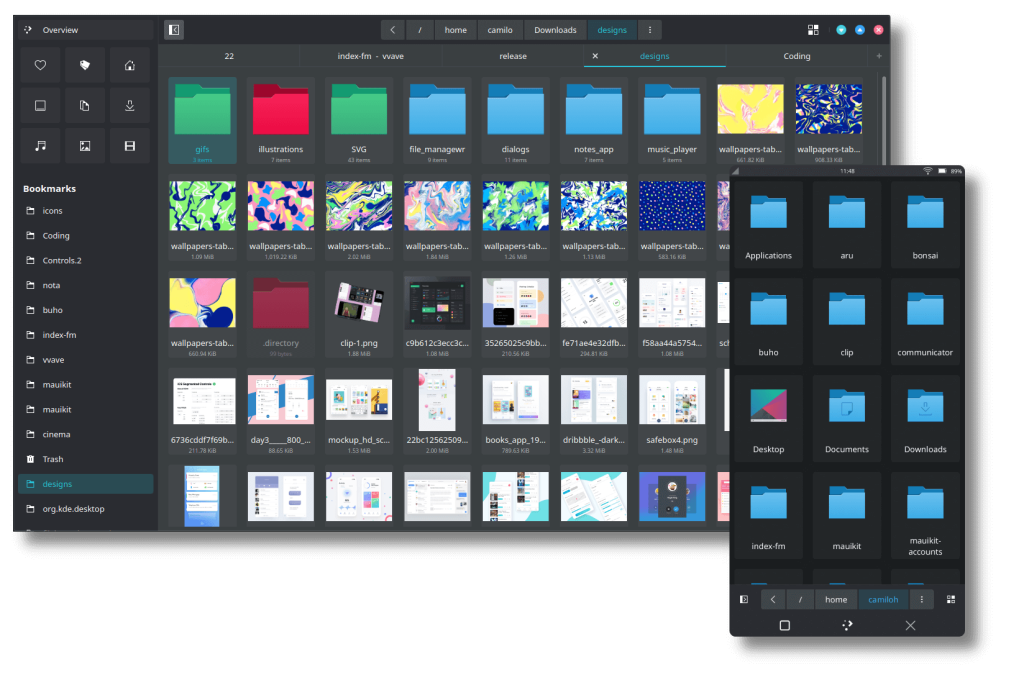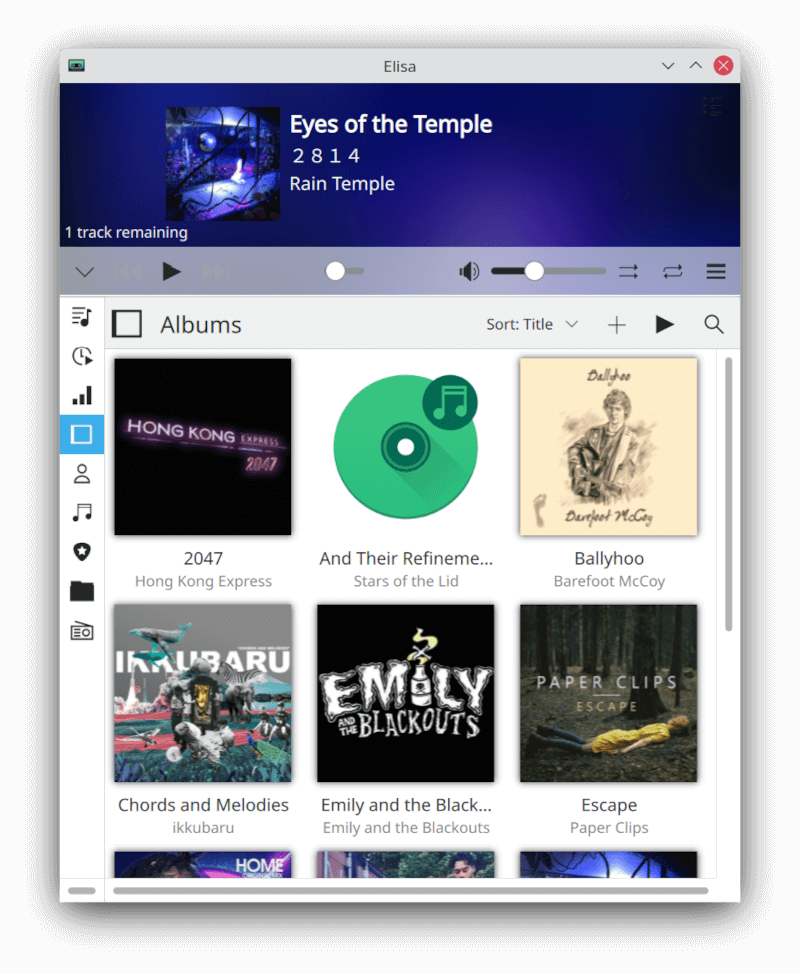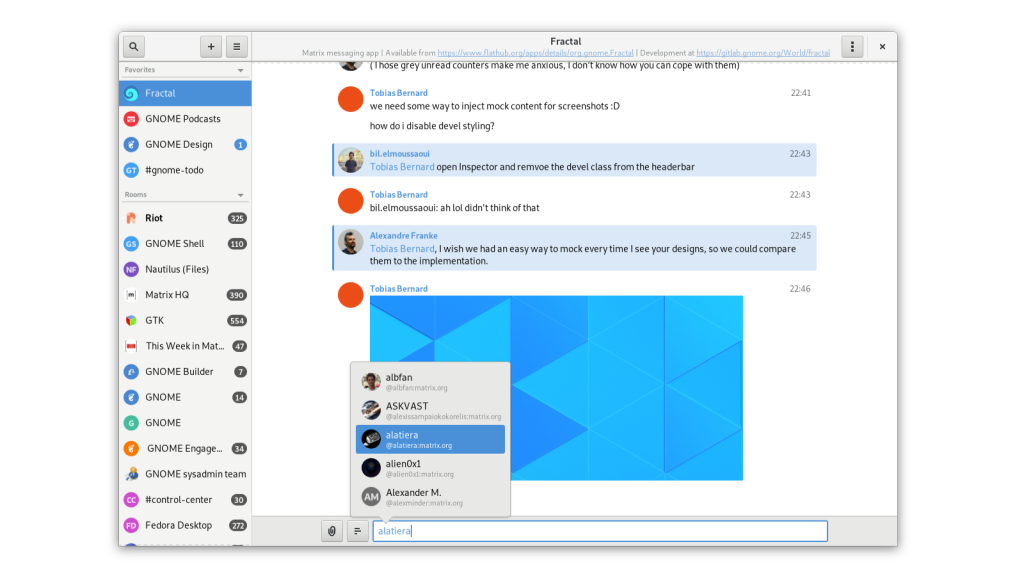Open Source Photo Manager digiKam Improves its AI Offerings
Better face recognition workflow, improved GPU support, and AI auto-rotation added.


Over the course of 2021, I have watched hundreds of interesting Linux apps gain development effort and users. While some of these have been discontinued, others live on, and all the time gaining popularity and new features.
While I wish that I could shed some light on all of these, this is unfortunately not possible. However, I have picked my top 5 favorites and shall share them with you here. They may not make the list of essential Linux applications but I absolutely love them.
Before we get started, it should be noted that all these apps—with the exception of EverSticky—are convergent, meaning they work equally well on desktop and mobile Linux devices. As devices such as the PinePhone and Librem 5 become more popular, I think it is quite important that convergent apps are supported, and it is great to see so many in development.
With that out of the way, let’s get onto our first app.

Back in 2016, when KDE released Kirigami, it was evident that it was the future of apps for KDE. Unfortunately, converting thousands of apps to a new UI toolkit is quite difficult, resulting in severe inconsistency between KDE applications.
Now, five years later, we are finally seeing Kirigami really being taken seriously as a UI toolkit for desktop-class apps, demonstrated perfectly in the file manager Index. This beautiful app is the default file manager of Plasma Mobile and Nitrix Linux, and for good reason.
While not as feature-rich as Dolphin, KDE’s default file manager, it does have an integrated terminal, file previews, tabs, and a split-view mode. This puts it on-par with Gnome’s Nautilus, with the obvious advantages of being convergent and Kirigami-based.
Since discovering it, I have used it exclusively, without even a thought of switching back to Dolphin or Nautilus. I would highly recommend it to anyone looking to experiment with their file manager.
I’m sure we can all agree that the past two years have been tough, but there is a light at the end of the tunnel. As vaccines roll out, it seems that we are finally nearing the end of this pandemic.
Unfortunately, this also means many people are having to get used to the idea of vaccine certificates, many of which are now digital. This can be problematic for Linux users, as health authorities rarely have the resources to develop vaccination certificate apps for Linux.
However, this hasn’t stopped some community members from working on a FOSS alternative, resulting in the creation of Vakzination. As a KDE app, it uses Kirigami and Qt Quick to create a fast, modern, and user-friendly vaccination certificate app that is easy and quick to use.
It currently supports the following certificate formats:
I honestly find it quite incredible what the community has managed to achieve with this app, and here’s hoping that they can add more format support soon.

Yet another Kirigami-based app, Elisa is a fast and beautiful music player from KDE. It supports all major audio formats, and is integrated into the Baloo file indexer to ensure that all your music is picked up.
Elisa is a music player developed by the KDE community that strives to be simple and nice to use. We also recognize that we need a flexible product to account for the different workflows and use-cases of our users. We focus on a very good integration with the Plasma desktop of the KDE community without compromising support for other platforms (other Linux desktop environments, Windows, and Android).
Elisa website
Overall, it is a great music player for any platform, and even more so for KDE Plasma and Plasma Mobile users.

Moving on to a Gnome application, Fractal has quickly become my favorite messaging app of all time. It makes use of the well-established Matrix communication protocol and supports all the features that a user might expect of a modern messaging app.
Among its more notable features are image and video previews, and support for all Matrix features. Additionally, it uses the LibHandy library, meaning that it works flawlessly on mobile devices such as the PinePhone and Librem 5.
Overall, I am extremely pleased with this app, as it suits the needs of almost anyone looking to communicate with friends or family.
By far the smallest project on this list, EverSticky is a small note-taking app similar to Windows 11’s Sticky Notes app. Unlike many of the other sticky-note apps available for Linux, EverSticky has one key advantage: The ability to sync to EverNote.
This means that all notes that are taken on EverSticky will also appear on any other devices signed in to EverNote. To help minimize clutter within the UI (built with Qt), it makes use of a tray icon, similar to those found in all recent versions of Windows.
From my experience with it, it works really well, with all my notes syncing seamlessly between all my devices. I’d highly recommend you try it out for yourself.
Overall, I am really quite excited about the future of apps on Linux. As more and more people start looking towards contributing to open-source projects, I can only hope that we get more incredible apps like these.
Do you have some other interesting new apps that you discovered this year? Share them down in the comments below!
It's FOSS turns 13! 13 years of helping people use Linux ❤️
And we need your help to go on for 13 more years. Support us with a Plus membership and enjoy an ad-free reading experience and get a Linux eBook for free.
To celebrate 13 years of It's FOSS, we have a lifetime membership option with reduced pricing of just $76. This is valid until 25th June only.
If you ever wanted to appreciate our work with Plus membership but didn't like the recurring subscription, this is your chance 😃
Stay updated with relevant Linux news, discover new open source apps, follow distro releases and read opinions